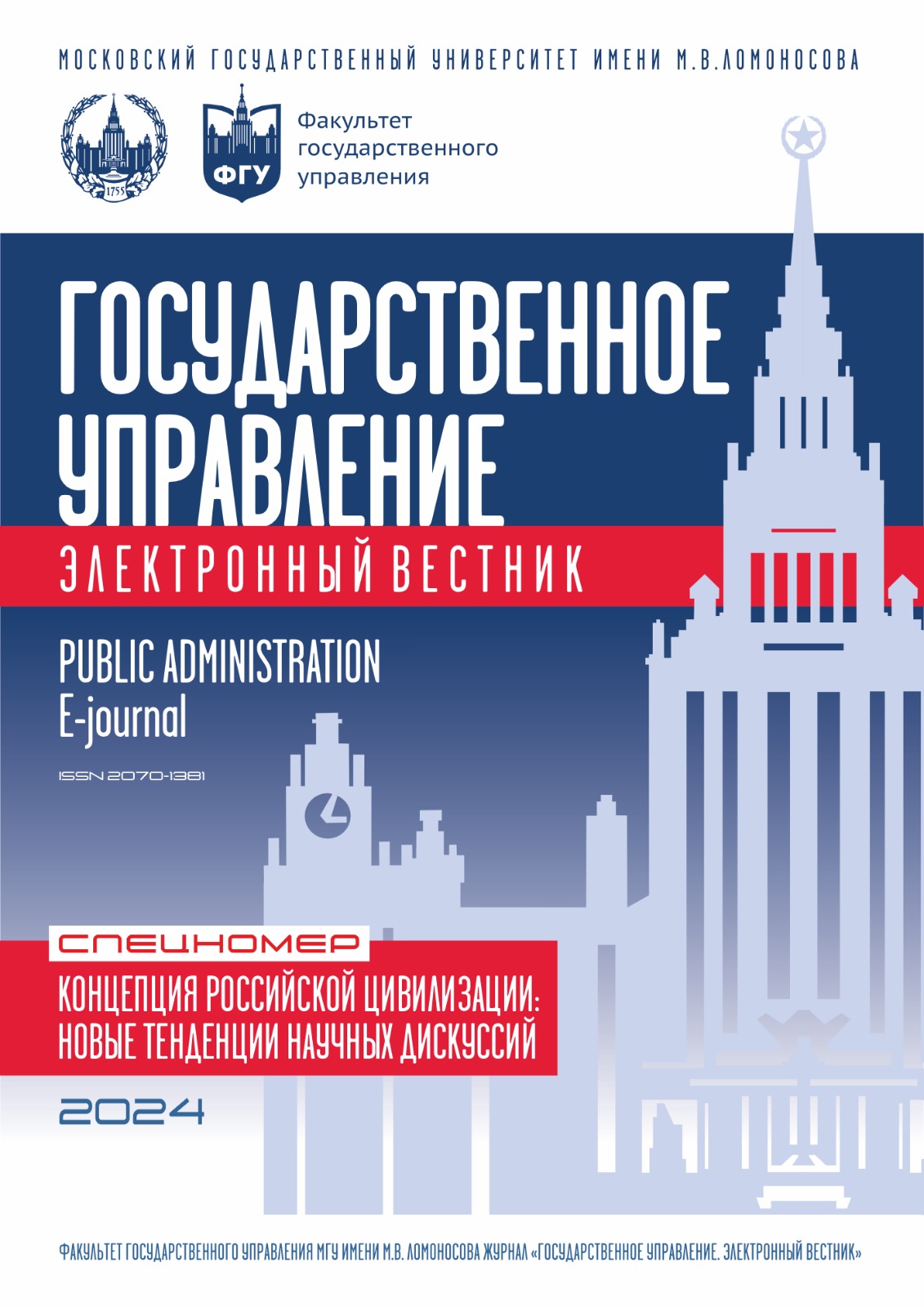Civilization Approach in Economic Researches
Keywords:
Civilization, civilization approach, economy, economic growth, multipolarity, multicivilizational, human economy, globalization, fragmentation.Abstract
The proposed article presents the author’s view on how the civilizational approach to the analysis of economic processes developed and what it consisted of in various predominantly Russian-language literary sources of the 19th century. The author recognizes that the volume of sources containing evidence of such an approach is immense, so he focuses on those that he considers the most important and indicative for assessing the contribution of Russian science to the development of such a methodology of economic analysis, as well as the modern concept of human economy, to which some of the author’s earlier works were devoted. In the author’s opinion, the civilization approach already at the early stages of economic research helped to bring out non-material, cultural-psychological and moral aspects of economic behavior and formation of economic institutions. Most studies of the impact of civilizational development on the economy demonstrate a certain one-directionality, that is, they are built in the logic of a hierarchical world order: civilized nations are at the top of the pyramid of development, and uncivilized, barbaric nations are located somewhere at its base. The civilizational approach allows us to abandon the “economism”, which has become a template, based on the exclusive recognition of the primacy of material factors of social development. In addition, in the author’s opinion, there is an opportunity to raise the question of the correctness of the multipolarity concept, which can no longer describe in detail the formation of a new world order. The civilizational approach gives a chance to assess the processes of globalization and fragmentation in a new way, not as antagonistic processes, but as mutually conditioned. In general, the future development of a multi-civilizational world order and its conflict-free nature will be largely determined by the willingness of representatives of primarily Western civilization to recognize the need to gradually abandon the paradigm of universality of social development conditions in favor of manners identity paradigm, uniqueness of economic structure and behavior, and the importance of identity for economic development.
References
Аникин А.В. Муза и мамона. Социально-экономические мотивы у Пушкина. М.: Мысль, 1989.
Бродель Ф. Грамматика цивилизаций. М.: Весь мир, 2014.
Бутовский А.И. Опыт о народном богатстве или о началах политической экономии. СПб.: Типография Второго Отделения Собственной Е.И.В. Канцелярии, 1847. Т. 1.
Жуковский Ю.Г. XIX век и его нравственная культура. СПб.: Типография В.О. Киршбаума, 1909.
Канкрин Е.Ф. Очерки политической экономии и финансии. СПБ.: Тип. Императорской Академии наук, 1894.
Кулишер И.М. Очерки финансовой науки. Петроград: Книгоиздательство «Наука и Школа», 1919.
Миловидов В.Д. Философия финансового рынка. М.: Магистр, 2013.
Миловидов В.Д. К истокам гуманитарной экономики // Мировая экономика и международные отношения. 2013. № 7. С. 3–11.
Миловидов В.Д. Подсознательные финансы: все ли на финансовом рынке определяет сознание? // Мировая экономика и международные отношения. 2014. № 1. С. 32–41.
Мордвинов Н.С. Рассуждения о могущих последовать пользах от учреждения частных по губерниям банков. СПб.: Тип. Императорского воспитательного дома, 1816.
Никонов В.А. Российская цивилизация. М.: Просвещение, 2021.
Шторх А. Курс политической экономии, или изложение начал, обусловливающих народное благосостояние. Размышления о природе национального дохода. М.: Издательский дом «Экономическая газета», 2008.
Янжул И.И. Основные начала финансовой науки: Учение о государственных доходах. СПб.: Типография И. Стасюлевича, 1895.
Goldsmith R.W. Premodern Financial Systems. A Historical Comparative Study. Cambridge: Cambridge University Press, 1987.
Hadas E. Human Goods and Economic Evil. A Moral Approach to Dismal Science. Wilmington: ISI Books, 2007.
Hann C., Hart K. Economic Anthropology. History, Ethnography, Critique. Cambridge: Polity Press, 2011.
Milovidov V. Pandemic in the Network Society: Network Readiness Increases Population Vulnerability to COVID-19 in Less Developed Countries // Acta Oeconomica. 2021. Vol. 71. Is. S1. P. 187–203.
Sedlacek T. Economics of Good and Evil. The Quest for Economic Meaning from Gilgamesh to Wall Street. Oxford: Oxford University Press, 2011.
Smith V. Humanomics. Moral Sentiments and the Wealth of Nations for The Twenty-First Century. Cambridge: Cambridge University Press, 2019.

